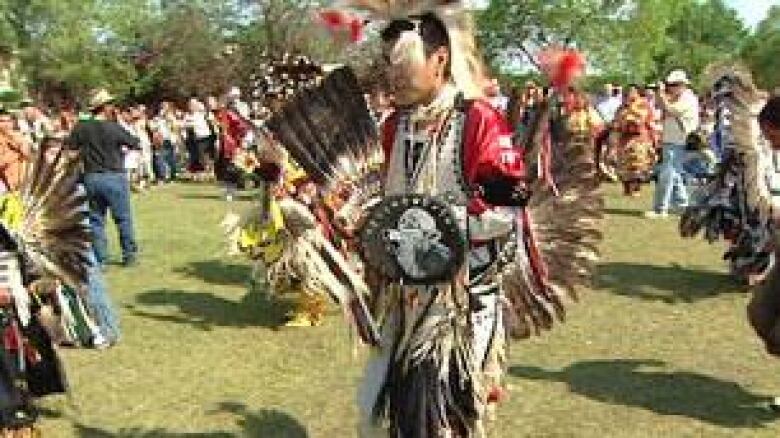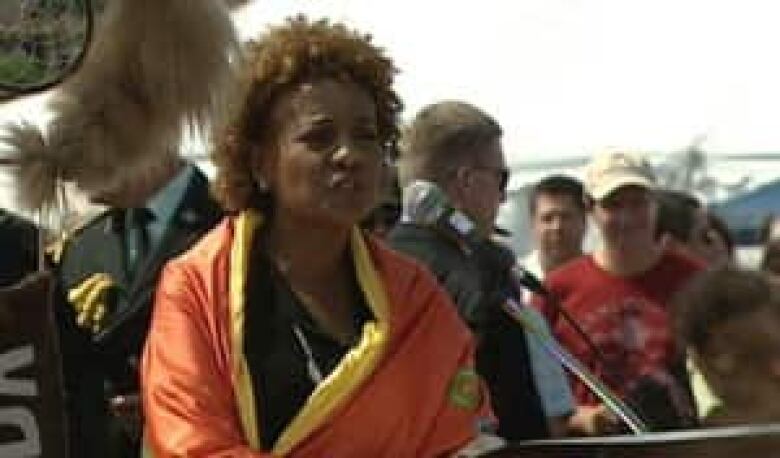Truth commissioners evaluate 1st event

"We are deeply grateful to those who came forward to share their experiences, and to those who opened themselves up to hear those stories and show those individuals that they no longer walk alone," said Manitoba Justice Murray Sinclair, TRC chair.
"What we have started here is a national dialogue that sheds light on a terrible chapter in our history.
"It has been a painful experience for many, but an important first step in what will be a lengthy but vital healing process for our country."
'It has been a painful experience for many, but an important first step in what will be a lengthy but vital healing process for our country.' Manitoba Justice Murray Sinclair, TRC chair
The national event, which ran June 16 to 19 in tents at The Forks national historic site in Winnipeg, was the first of seven national events that will take place across the country.
The events are intendedto bean opportunity to educate the public about the residential school system that existed in Canada for more than 100 years, and give former students, staff and others whose lives have been affected by the experience a chanceto talk about it publicly.
The goal was to help survivors heal and "close the divide between aboriginal people and the rest of Canadians," Sinclair has said.
Lack of preparation time
Organizers recorded 425 statements from survivors, but had hoped to record more than 600. A lack of preparation time was cited as the reason the total wasn't higher.

Two hundred and seventy five survivors gave their statements in private, while the remainder chose to share them in public. The longest statement lasted seven hours, but officials said the average time a survivor spoke was two hours.
The $60-million commission was formed by the federal government in June 2008 the same time a formal apology was issuedin the House of Commons for the abuses people suffered at residential schools.
But infighting paralyzed the commission's work. Less than four months after it was formed, the chair and the two commissioners stepped down.
They were replaced last year by Sinclair and new commissioners. Sinclair then moved the headquarters from Ottawa to Winnipeg.
Commit to reconciliation:Governor General
The Winnipeg event ended the way it began with songs and drumming under clear skies and a strong sun.

She called on everyone present elders and youth, aboriginal or not to commit to reconciliation and breaking down the wall of indifference.
"We are alive and we are strong. We are very strong, and this is all about our strength," she said.
For a couple of days in the middle of the event, rain and wind wreaked havoc, chasing people indoors and causing organizers to scramble and reschedule locations for some programming.
Sinclair saw it as nature's reflection of the healing process.
"In some ways the rain and the cleansing nature of the water that fell from the sky, and those strong winds that blew, were a sign of what it was that was going on here," he said.
The TRC is now planning an evaluation of what worked and what didn't at the Winnipeg event and will decide what improvements need to be made for the remaining six events.
The next national event will be in Inuvik,N.W.T., in June 2011.












_(720p).jpg)


 OFFICIAL HD MUSIC VIDEO.jpg)
.jpg)



























































































